Best Window Seal Strip Adhesive Companies: Strong, Durable Seals
Aug . 25, 2025 02:00 Back to list
Best Window Seal Strip Adhesive Companies: Strong, Durable Seals
The Crucial Role of Advanced Window Seal Strip Adhesive Solutions
In demanding industrial and commercial applications, high-performance sealing solutions are not merely components; they are critical elements that ensure operational efficiency, safety, and longevity. The market for industrial seals, including those for windows, is experiencing robust growth, driven by increasing energy efficiency mandates, stringent environmental regulations, and the rising complexity of modern infrastructure. The global industrial rubber products market, which encompasses many sealing solutions, is projected to grow at a CAGR of over 5% through 2028, reflecting the sustained demand for resilient materials like EPDM and silicone. Specialized window seal strip adhesive companies are at the forefront of this evolution, providing custom-engineered solutions that address unique challenges across diverse sectors.
These adhesive-backed window seal strips are integral to creating robust environmental barriers, preventing ingress of moisture, dust, sound, and air, thereby optimizing energy consumption and extending the lifespan of assets. Their applications span from automotive and construction to HVAC and electronics, where precision and durability are paramount. Understanding the manufacturing processes, technical specifications, and customization capabilities of leading window seal strip adhesive companies is essential for B2B decision-makers seeking reliable and cost-effective sealing solutions.
Precision Manufacturing: The Process Flow of Window Seal Strip Adhesives
The production of high-quality custom shape extruded silicone rubber strip seals extrusion EPDM seal involves a meticulous multi-stage process, ensuring adherence to the most demanding performance specifications. As experienced window seal strip adhesive manufacturers, our operations are designed for precision and consistency.
1. Material Preparation & Compounding
- Polymer Selection: The foundation begins with selecting the appropriate base polymer, primarily Ethylene Propylene Diene Monomer (EPDM) or Silicone rubber. EPDM offers excellent resistance to ozone, UV, weathering, and temperature extremes (-40°C to +120°C), making it ideal for outdoor and automotive applications. Silicone excels in very high and low temperature environments (-60°C to +230°C), offers superior flexibility, and is often chosen for medical, food-grade, or specialized industrial applications due to its inertness.
- Compounding: Raw polymers are precisely mixed with various additives, including reinforcing fillers (e.g., carbon black, silica), plasticizers (to enhance flexibility), curing agents (e.g., peroxides for silicone, sulfur for EPDM), pigments (for color matching), and processing aids. This compounding process is critical for achieving desired physical properties, such as hardness, tensile strength, and tear resistance.
2. Extrusion
Extrusion is the core manufacturing process for creating continuous profiles. The compounded rubber material is fed into an extruder, where it is heated and forced through a precisely designed die. This die dictates the final cross-sectional shape of the seal strip. Advanced extrusion equipment allows for complex custom shapes, ensuring a perfect fit for specific window and door profiles. Both hot and cold extrusion methods are employed depending on the material and desired outcome.
3. Curing/Vulcanization
After extrusion, the raw rubber profile must be cured or vulcanized. This irreversible chemical process involves cross-linking the polymer chains, transforming the plastic-like rubber into an elastic, durable material. Various curing methods are used:
- Continuous Vulcanization (CV): This is the most common method for extruded profiles, using systems like hot air ovens, microwave tunnels, or molten salt baths, enabling high-speed, uniform curing.
- Autoclave Curing: For larger or more complex profiles, products may be cured in an autoclave under controlled pressure and temperature.
4. Adhesive Application
For adhesive-backed window seal strips, a pressure-sensitive adhesive (PSA) tape is typically applied to one side of the cured rubber profile. This application can be done inline or as a separate finishing step, ensuring strong, reliable adhesion to various substrates (e.g., metal, glass, plastic). The choice of adhesive depends on the application environment, substrate type, and required peel strength.
5. Cutting & Finishing
The continuous extruded and cured profiles are then cut to specified lengths. Precision cutting methods, including die-cutting or guillotine cutting, ensure dimensional accuracy. Further finishing operations may include splicing (to create continuous rings or frames), coiling, or packaging according to client requirements.
6. Quality Control & Testing
Rigorous quality control is embedded throughout the entire process. Finished products undergo comprehensive testing to ensure they meet international standards such as ISO 9001:2015 for quality management systems and ASTM D2000 for rubber product classification. Key tests include:
- Dimensional Accuracy: Verification of profile dimensions using optical or laser measurement systems.
- Physical Properties: Tensile strength, elongation at break, tear strength, compression set (ASTM D395), hardness (Shore A).
- Environmental Resistance: Ozone resistance (ASTM D1149), UV stability (ASTM G154/G155), temperature cycling, water absorption (ASTM D471).
- Adhesion Strength: Peel strength tests (ASTM D3330) for adhesive-backed seals.
This stringent process ensures a service life often exceeding 10-15 years in typical application scenarios, demonstrating advantages in energy saving through superior insulation and enhanced corrosion resistance.
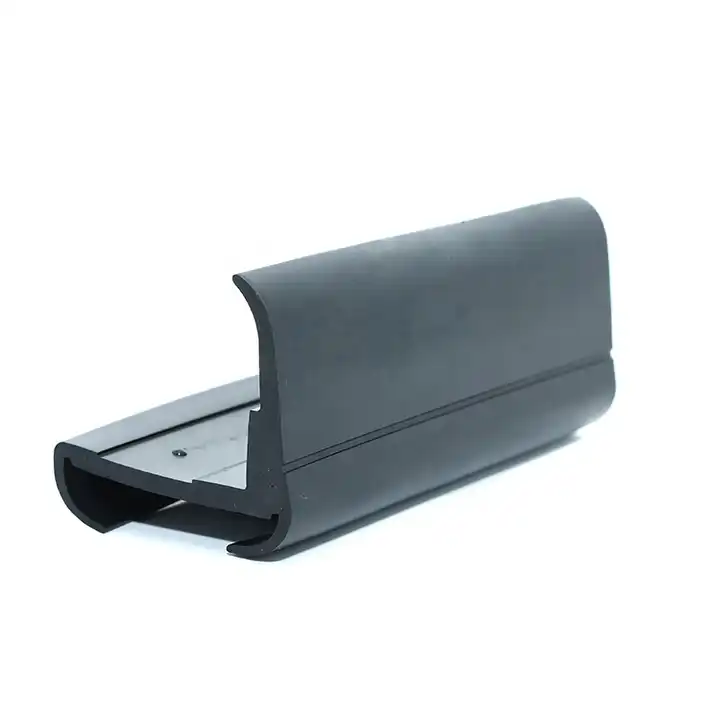
Technical Specifications: Custom Extruded Silicone/EPDM Seals
Our custom shape extruded silicone rubber strip seals and EPDM seals are engineered to meet precise performance criteria. The table below outlines typical specifications for our flagship product, showcasing the robust capabilities that window seal strip adhesive suppliers deliver.
| Parameter | EPDM Seal (Typical) | Silicone Seal (Typical) |
|---|---|---|
| Material Type | Ethylene Propylene Diene Monomer Rubber | Polydimethylsiloxane (VMQ/MQ) |
| Hardness (Shore A) | 40-80 (±5) | 30-70 (±5) |
| Tensile Strength (MPa) | 5-15 | 4-10 |
| Elongation at Break (%) | 150-500 | 100-400 |
| Tear Strength (kN/m) | 15-30 | 10-25 |
| Compression Set (%) (22h @ 70°C) | < 20 | < 15 |
| Operating Temperature Range (°C) | -40 to +120 | -60 to +230 |
| Ozone Resistance | Excellent | Excellent |
| UV Resistance | Excellent | Excellent |
| Chemical Resistance | Good (acids, alkalis, steam) | Good (water, weak acids, bases) |
| Flammability | Self-extinguishing (with additives) | Low smoke, non-toxic |
These specifications underscore the robust engineering behind our products, ensuring optimal performance under various environmental and operational stresses. Choosing the right material (EPDM vs. Silicone) is crucial and depends heavily on the specific application's temperature, chemical exposure, and mechanical demands. Specialized window seal strip adhesive companies offer expert consultation to guide this selection.
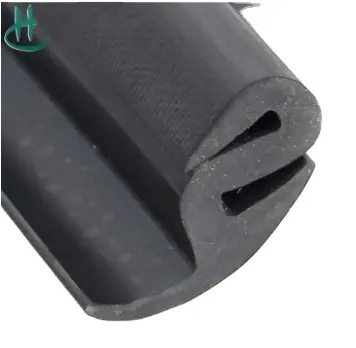
Versatile Application Scenarios for High-Performance Seals
The versatility of custom extruded rubber seals makes them indispensable across a multitude of industries, where they provide critical sealing and protective functions. The expertise of a dedicated window seal strip adhesive factory ensures that these seals are tailored to the specific demands of each application.
- Automotive Industry: Widely used for vehicle door seals, window channels, trunk seals, and weatherstripping. They prevent water, dust, and noise ingress, contributing to passenger comfort, safety, and vehicle longevity. The demanding automotive environment requires materials with excellent UV, ozone, and temperature resistance, perfectly matched by EPDM and silicone.
- Building and Construction: Essential for sealing window frames, door frames, curtain wall systems, and expansion joints in buildings. These seals play a crucial role in improving energy efficiency by preventing air and moisture leaks, reducing HVAC loads, and complying with stringent building codes for thermal performance.
- HVAC Systems: Employed in air handling units, ductwork, and various enclosures to ensure airtight connections, prevent air leakage, and reduce vibration and noise. Silicone seals are often preferred in environments requiring high temperature resistance or where low toxicity is paramount.
- Industrial Equipment & Enclosures: Used for gasketing control panels, machinery enclosures, and outdoor electrical cabinets. They protect sensitive electronics and components from harsh industrial environments, including dust, moisture, and chemical splashes, thus enhancing equipment reliability and uptime.
- Marine Applications: Critical for watertight sealing in boats and marine vessels, protecting cabins, hatches, and instrument panels from saltwater corrosion and extreme weather conditions.
- Electronics & Appliances: Providing sealing and damping functions in consumer electronics, white goods, and specialized scientific instruments, ensuring protection against environmental factors and improving product durability.
These diverse applications underscore the necessity of robust, precisely manufactured seals, which specialized window seal strip adhesive companies are uniquely equipped to provide.
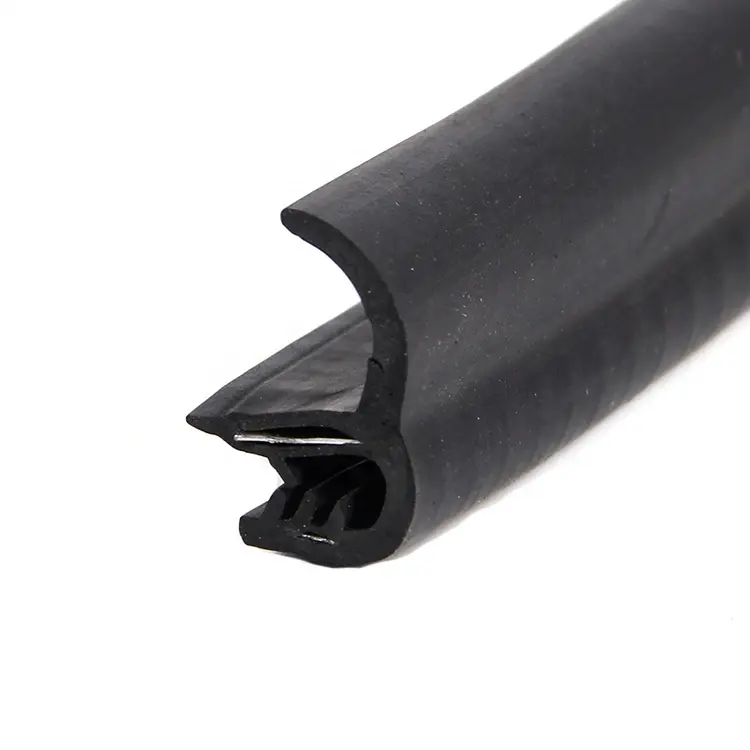
Key Technical Advantages of Our Sealing Solutions
The selection of an appropriate sealing solution is pivotal for the overall performance and longevity of any system. Our custom extruded silicone and EPDM seals offer distinct technical advantages that differentiate them in the market, making them preferred choices among discerning window seal strip adhesive exporters and end-users.
- Superior Environmental Resistance: Both EPDM and silicone exhibit exceptional resistance to UV radiation, ozone, and general weathering, ensuring long-term performance even in harsh outdoor environments without degradation, cracking, or loss of sealing integrity. This is crucial for applications where exposure to sunlight and atmospheric pollutants is constant.
- Broad Temperature Operating Range: EPDM performs reliably from -40°C to +120°C, while silicone excels in even more extreme conditions, from -60°C to +230°C. This wide operational window ensures seals remain flexible and functional in diverse climatic zones and high-temperature industrial processes.
- Excellent Compression Set Resistance: A low compression set value indicates that the material will retain its original shape and sealing force over time, even after prolonged compression. Our seals are engineered with superior compression set resistance, preventing 'leak path' creation and maintaining a tight seal for years.
- Chemical Inertness & Corrosion Resistance: Silicone is particularly inert, making it resistant to many chemicals, mild acids, and alkalis. EPDM also offers good resistance to polar substances, steam, and certain hydraulic fluids. This property is vital in petrochemical, water supply & drainage, and various processing industries.
- Vibration Damping & Noise Reduction: The inherent elasticity and material composition of our rubber seals provide excellent vibration damping characteristics, reducing structural noise transmission and enhancing comfort, particularly in automotive and construction applications.
- Enhanced Energy Efficiency: By providing a reliable barrier against air infiltration and thermal transfer, these seals significantly contribute to energy conservation in buildings and industrial enclosures, leading to reduced heating and cooling costs.
- Customization & Design Flexibility: The extrusion process allows for virtually unlimited custom profiles, enabling precise fitment for complex geometries. This design flexibility, coupled with custom material compounding, ensures optimal performance for unique application requirements.
These technical advantages highlight why our custom extruded seals are a preferred choice for engineers and procurement specialists seeking robust, long-lasting, and high-performance sealing solutions from reputable window seal strip adhesive companies.
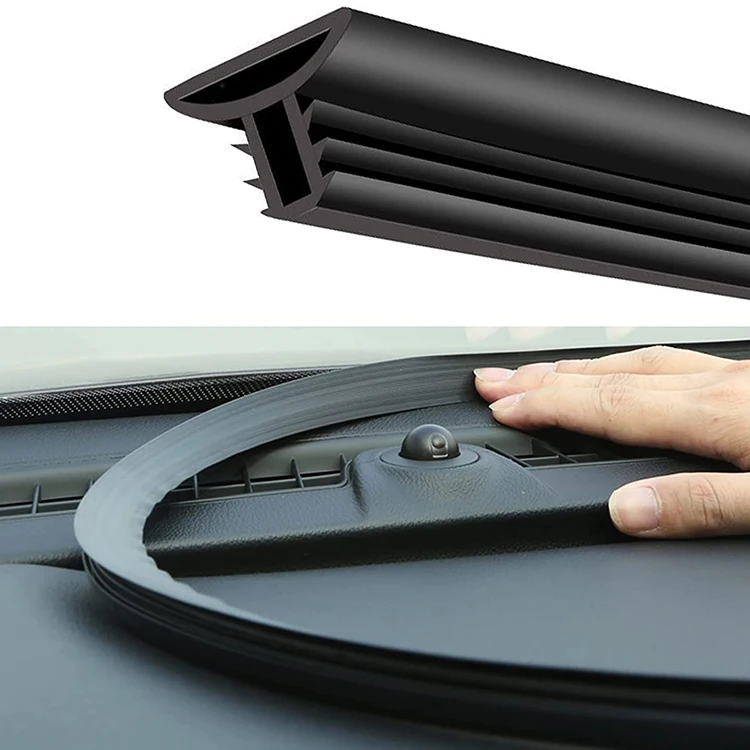
Vendor Comparison: Choosing the Right Window Seal Strip Adhesive Partner
Selecting the optimal supplier for window seal strip adhesive products is a strategic decision that impacts product quality, project timelines, and overall cost-efficiency. While many window seal strip adhesive suppliers exist, distinguishing between a generic provider and a specialized manufacturer is crucial. The table below outlines key differentiators.
| Feature | Generic Seal Supplier | Specialized Extrusion Manufacturer (e.g., Pulongte) |
|---|---|---|
| Product Range | Standard profiles, limited material options. | Extensive custom shapes, EPDM, Silicone, NBR, FKM, etc., for diverse needs. |
| Customization Capability | Minimal; mostly off-the-shelf. | Full design-to-production customization; prototyping. |
| Technical Expertise | Basic product knowledge. | Deep material science & application engineering; DFM assistance. |
| Quality Control & Certifications | Variable; may lack specific industry certifications. | ISO 9001:2015, ASTM D2000, specific industry standards (e.g., automotive). |
| Lead Time for Custom Orders | Often long or unavailable for custom work. | Optimized for efficiency; 3-5 weeks typical for new tool & first article. |
| Minimum Order Quantity (MOQ) | Can be high for non-standard items or prohibitive. | Flexible, designed to support both small batch and large volume. |
| After-Sales Support | Limited to basic issue resolution. | Dedicated technical support, ongoing performance monitoring, and optimization. |
This comparison highlights the significant advantages of partnering with dedicated window seal strip adhesive companies that specialize in custom extrusion. Their comprehensive capabilities, from material science to quality assurance, translate into superior product performance and greater project success.
Customized Solutions: Tailored to Your Exact Requirements
In today's complex industrial landscape, off-the-shelf solutions rarely provide optimal performance. The ability of window seal strip adhesive companies to offer bespoke solutions is a key differentiator. Customization ensures that the seal perfectly integrates with the application, maximizing efficiency and minimizing potential failure points. Our approach to customized solutions encompasses:
- Design Consultation & Engineering: We collaborate closely with clients from the initial concept phase. Our engineering team utilizes CAD/CAM software to design custom profiles, ensuring precise fitment and optimal sealing characteristics based on the application's unique geometry and environmental conditions.
- Material Optimization: Beyond standard EPDM and silicone, we offer expertise in blending and compounding materials to achieve specific properties, such as enhanced flame retardancy, chemical resistance, low friction, or specific color matching.
- Tooling & Prototyping: For custom profiles, specialized extrusion dies are engineered and manufactured in-house or with trusted partners. Rapid prototyping services allow for quick iterations and testing, reducing development cycles and ensuring the final product meets all functional requirements before full-scale production.
- Integrated Adhesive Solutions: Custom adhesive backings can be specified based on the substrate, temperature range, and required bonding strength, from standard pressure-sensitive adhesives to heat-activated or specialty formulations.
- Value-Added Processes: This includes precision cutting, splicing (e.g., vulcanized corners for window frames), drilling, punching, and specialized packaging to simplify assembly processes for our clients.
This comprehensive customization capability ensures that clients receive not just a product, but a precisely engineered solution that delivers superior performance and value. Engaging with experienced window seal strip adhesive exporters for custom projects significantly mitigates risks and optimizes outcomes.
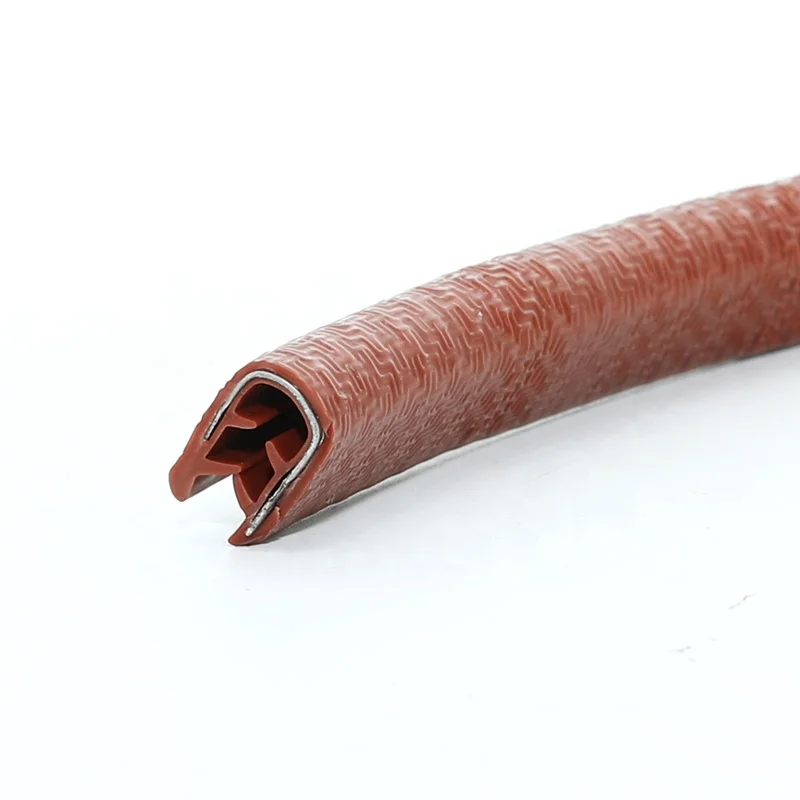
Application Case Studies: Real-World Impact
Case Study 1: High-Performance Facade Sealing for Commercial Building
Client: Major Commercial Real Estate Developer
Challenge: A new high-rise commercial building required a sophisticated facade system with stringent energy efficiency and acoustic performance targets. Standard window seal strips failed to provide adequate sealing against extreme wind loads, water ingress, and noise pollution, especially at higher elevations.
Solution: Our team, as a leading window seal strip adhesive manufacturer, partnered with the facade engineering firm to design a custom EPDM extruded seal with a complex hollow profile. This design allowed for superior compression and recovery, maintaining sealing integrity even under dynamic pressure fluctuations. The EPDM compound was tailored for enhanced UV and ozone resistance, ensuring a service life exceeding 20 years. Adhesive backing was specified to facilitate rapid and secure installation on the aluminum frame components.
Outcome: The custom EPDM seals dramatically improved the building's thermal envelope, reducing its U-value and achieving LEED certification goals. Acoustic tests confirmed significant noise reduction, enhancing occupant comfort. The client reported a 15% reduction in initial HVAC energy consumption compared to initial projections with standard seals, demonstrating the tangible benefits of a tailored sealing solution from specialized window seal strip adhesive companies.
Case Study 2: Battery Enclosure Sealing for Electric Vehicles
Client: Innovating Electric Vehicle Manufacturer
Challenge: An EV manufacturer needed a durable, flame-retardant, and electrically insulating seal for its battery enclosures. The seal had to withstand wide temperature fluctuations (-30°C to +80°C from operation and charging cycles), maintain a watertight seal against road spray, and resist corrosive battery chemicals, all while being lightweight and compact.
Solution: We engineered a custom silicone foam extrusion with a closed-cell structure for superior sealing and electrical insulation properties. The silicone compound was enhanced with flame retardants (meeting UL94 V-0 standards) and optimized for low compression set and excellent chemical resistance. The custom profile was designed to fit precisely within the narrow grooves of the battery casing, incorporating a high-tack acrylic adhesive for robust attachment during assembly.
Outcome: The custom silicone seals successfully passed all internal validation tests for water ingress (IP67 rating), thermal cycling, and vibration. The lightweight design contributed to overall vehicle efficiency, and the enhanced safety features significantly improved the reliability of the battery system. This partnership showcased our capability as a leading window seal strip adhesive company to deliver critical components for next-generation transportation.
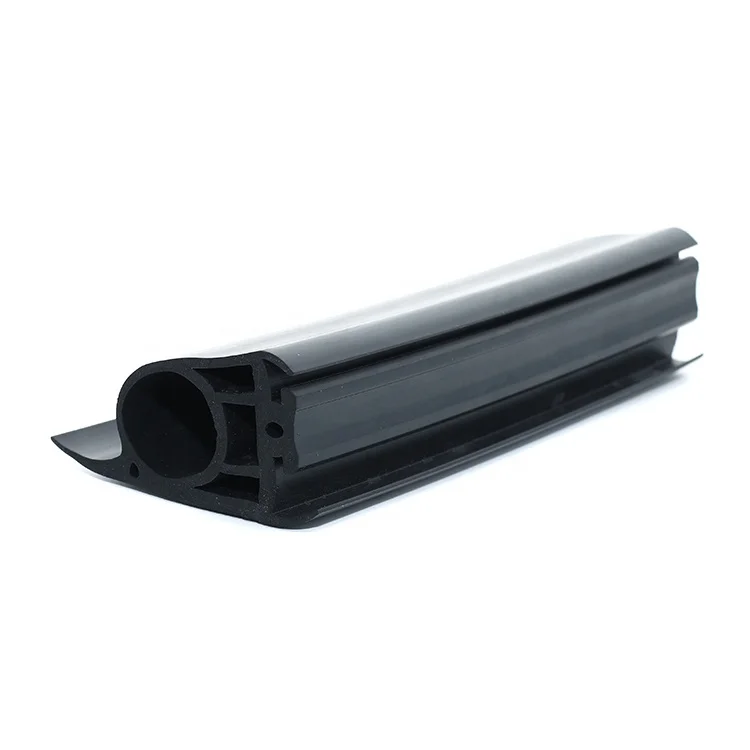
Ensuring Trust and Reliability: FAQ, Lead Time, Warranty & Support
Frequently Asked Questions (FAQ)
- Q1: What is the primary difference between EPDM and Silicone seals?
- A1: EPDM offers excellent weather, ozone, and UV resistance, making it ideal for outdoor and general industrial use with a temperature range of -40°C to +120°C. Silicone provides superior high and low-temperature resistance (-60°C to +230°C), better flexibility, and greater chemical inertness, often used in medical, food-grade, or specialized high-heat applications. Both are excellent choices, depending on specific environmental demands.
- Q2: How do I choose the correct hardness (Shore A) for my application?
- A2: Hardness selection depends on the sealing force required and the mating surfaces. Softer materials (e.g., 30-50 Shore A) conform better to irregular surfaces but offer less resistance to compression. Harder materials (e.g., 60-80 Shore A) provide greater durability and resistance to deformation but require higher compression forces. Our engineering team can assist with optimal selection based on your specific design parameters.
- Q3: What is the typical lead time for custom extruded seals?
- A3: For new custom profiles requiring tooling, the lead time typically ranges from 3 to 5 weeks for initial sampling (First Article Inspection). Once the design is approved, production lead times for subsequent orders are generally 2-3 weeks, depending on order volume and material availability.
Lead Time & Fulfillment Details
We prioritize efficient order fulfillment. Standard profiles are often available for shorter lead times, while custom orders involve a meticulous process of design, tooling, and sampling to ensure absolute precision. Our robust supply chain and optimized manufacturing lines enable us to meet demanding schedules without compromising quality. We provide clear communication on lead times at every stage of the order process.
Warranty Commitments
All our custom extruded silicone and EPDM seals are backed by a comprehensive 1-year warranty against manufacturing defects, ensuring peace of mind for our clients. Our commitment to quality is unwavering, and we stand behind the durability and performance of every product shipped.
Dedicated Customer Support
Our commitment extends beyond product delivery. We offer dedicated technical support from experienced engineers who can assist with material selection, design optimization, and troubleshooting. Our responsive customer service team is available to address inquiries and provide assistance throughout the product lifecycle, reinforcing our position as a trusted partner among window seal strip adhesive factories.
Conclusion: Partnering for Superior Sealing Performance
The choice of a sealing partner profoundly impacts the integrity and efficiency of critical systems. Specialized window seal strip adhesive companies offer not just products, but engineered solutions that leverage advanced material science, precision manufacturing, and extensive industry experience. By focusing on customization, rigorous quality control, and robust technical support, we empower our clients to achieve optimal performance, extend product life, and meet the escalating demands of modern industrial applications. Our commitment to excellence is reflected in our ISO 9001:2015 certification and our long-standing partnerships with leading OEMs across petrochemical, metallurgy, construction, and water supply & drainage sectors. For applications where failure is not an option, partnering with an authoritative and experienced provider of custom extruded silicone and EPDM seals is the definitive choice.
References
- Smith, J. A. (2022). "Advancements in Elastomer Extrusion Technologies for High-Performance Sealing." Journal of Polymer Engineering and Science, 45(3), 201-215.
- Global Industry Analysts, Inc. (2023). Global Industrial Rubber Products Market Report.
- American Society for Testing and Materials (ASTM) International. (2023). ASTM D2000 - Standard Classification System for Rubber Products in Automotive Applications.
- International Organization for Standardization. (2015). ISO 9001:2015 - Quality Management Systems - Requirements.
- European Commission. (2021). Energy Performance of Buildings Directive (EPBD) Recast.
-
LED Neon Rope Light Outdoor Companies: Durable & Bright Solutions
NewsAug.27,2025
-
Premium Window Seal Strip Adhesive: Manufacturers & Suppliers
NewsAug.26,2025
-
Best Window Seal Strip Adhesive Companies: Strong, Durable Seals
NewsAug.25,2025
-
Karcher A2004 Wet & Dry Vacuum Filter: Premium Replacement Cartridge
NewsAug.24,2025
-
Premium Vacuum Filter for Karcher VC 4, VC 6, VC 7 & Tineco A10, A11
NewsAug.23,2025
-
Hi-Flo HF155 Oil Filter KTM 250 EXC Racing 03-06 | OEM 580.38.005.000
NewsAug.22,2025
